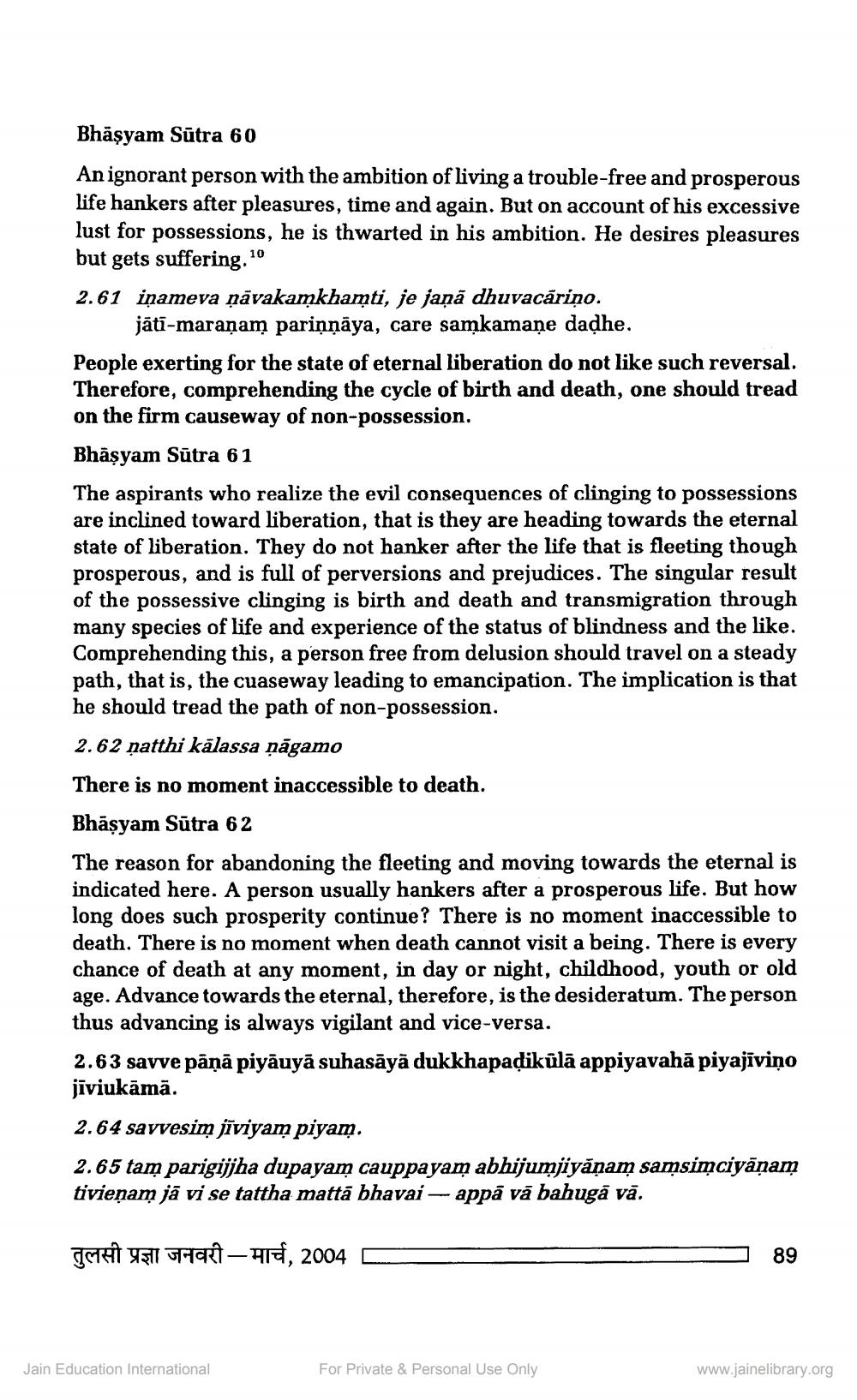________________
Bhāoyam Sutra 60 An ignorant person with the ambition of living a trouble-free and prosperous life hankers after pleasures, time and again. But on account of his excessive lust for possessions, he is thwarted in his ambition. He desires pleasures but gets suffering. 10 2.61 inameva ņāvakamkhamti, je janā dhuvacariño.
jātī-maraṇam pariņņāya, care samkamaņe dadhe. People exerting for the state of eternal liberation do not like such reversal. Therefore, comprehending the cycle of birth and death, one should tread on the firm causeway of non-possession. Bhagyam Sūtra 61 The aspirants who realize the evil consequences of clinging to possessions are inclined toward liberation, that is they are heading towards the eternal state of liberation. They do not hanker after the life that is fleeting though prosperous, and is full of perversions and prejudices. The singular result of the possessive clinging is birth and death and transmigration through many species of life and experience of the status of blindness and the like. Comprehending this, a person free from delusion should travel on a steady path, that is, the cuaseway leading to emancipation. The implication is that he should tread the path of non-possession. 2.62 natthi kalassa nāgamo There is no moment inaccessible to death. Bhāsyam Sutra 62 The reason for abandoning the fleeting and moving towards the eternal is indicated here. A person usually hankers after a prosperous life. But how long does such prosperity continue? There is no moment inaccessible to death. There is no moment when death cannot visit a being. There is every chance of death at any moment, in day or night, childhood, youth or old age. Advance towards the eternal, therefore, is the desideratum. The person thus advancing is always vigilant and vice-versa. 2.63 savve pāņā piyāuyā suhasāyā dukkhapaļikūlā appiyavahā piyajīviņo jiviukāmā.
2.64 savvesim jīviyam piyam. 2.65 tam parigijjha dupayam cauppayam abhijumjiyāņam samsimciyāṇam tivieņam jā vi se tattha mattā bhavai - appā vā bahugā vā.
TAHU YETI HAI-777, 2004
-
89
Jain Education International
For Private & Personal Use Only
www.jainelibrary.org




